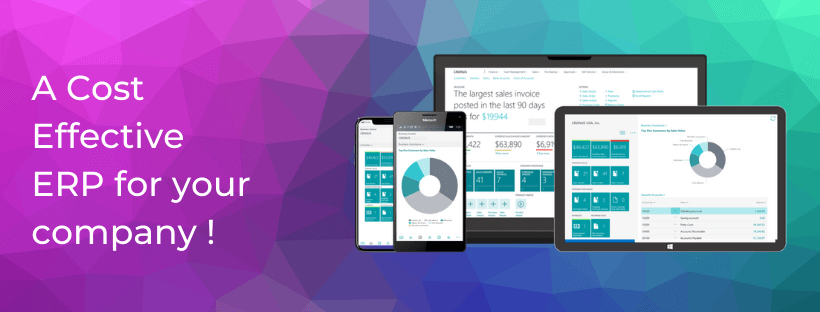- July 26, 2023
- Posted by: Mustafa Chohan
- Category: Cloud based ERP

There are many applications that organizations use to manage Finances, inventory, supply chain, manufacturing, and production. But there are only few who provide one solution for all these modules. Such an application is called ERP system. ERP is an abbreviation for Enterprise Resource Planning. It is an application suite which has integrated multiple applications under one platform.
Here are some key factors to consider when considering ERP systems applications for business use:
Integration
ERP system applications integrates with multiple business functions such as finance, human resources, supply chain, manufacturing, inventory management, sales and customer relationship management. It helps in eliminating data duplication and allows seamless flow of information across all the departments. For example, when a sales order is created, ERP can automatically update all the inventory levels, initiate production, generate invoices, and update financial records.
Maintainance
Most of the ERP system Application maintain their own centralized database that serves as a single source of all business data. This database helps store all the information related to customers, vendors, products, employees and financial transactions. Businesses can have a unified and up-to-date data repository ensures data integrity, consistency and accessibility across the organization.
Automation
Most of the ERP system Applications help in standardizing and automating business processes, they help in reducing manual efforts and improve the efficiency. These applications help in providing workflow management tools that define and enforce predefined processes, these processes help in ensuring that tasks are performed in a consistent and timely manner. This in-term streamlines operations and reduces chances of errors and lastly improves productivity for the organizations.
Reporting And Analytics
There are my ERP system Applications which offer reporting and analytics capabilities to generate meaningful insight from the business data. Users can easily create custom reports, dashboards, and graphics visualizations to monitor key performance indicators, track trends, and make data-driven decisions. They would have access to real-time and accurate information without any problem. Businesses can identify opportunities, detect bottlenecks and optimize their operations effectively and efficiently.
Collaboration and Communication
ERP Application helps promote cross functional collaboration and communication within the organization. Different departments can access and share information without any problem, collaborate on multiple projects, and coordinate on all the activities assigned to the users accordingly. The break-down of all the tasks helps in fostering cross-functional collaborations, leading to better teamwork and overall organizational efficiency.
Planning
ERP Applications are planned in such a way that it can accommodate the needs of growing the businesses. It helps in providing scalability and flexibility to adapt to changing business requirements. As the organization expands and diversifies, the application can be made custom and configured according to the needs, supports additional users, locations, and its functionalities.
Regulatory Requirements
In many cases, ERP software help businesses comply with regulatory requirements according to industry standards. This enables many organizations in getting accurate and timely financial reports, automates tax calculations, makes sure that data security and privacy is up to mark and facilitates adherence to legal and regulatory frameworks. This helps in reducing the compliance risks supports audits and financial reviews.
Implementations
ERP implementation consolidates and automates various processes, leading to cost and time savings. By eliminating redundant tasks, reducing manual errors, system optimizes inventory levels and also streamlines all the operation activities. Business can achieve greater operational efficiency and cost effectiveness.
In short, ERP system implementations help integrate and streamline business processes. They help in providing a centralized database, enhances collaboration, enables data-driven decision making, and supports all sorts of regulatory requirements. It also offers numerous benefits for businesses, including improved productivity, efficiency, and agility. That leads to a better customer service. And Increases the profitability, and sustains growth for the business.



